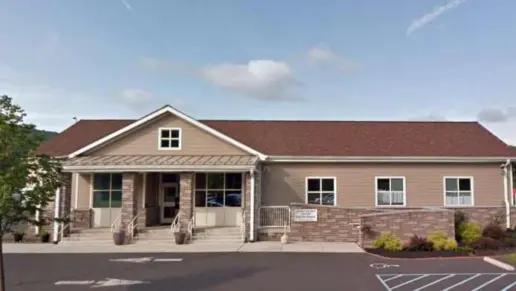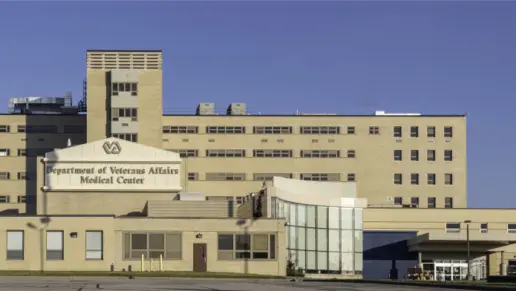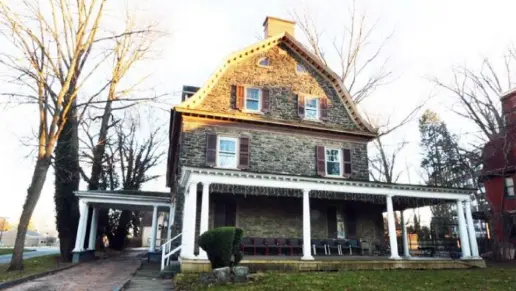Entered Pyramids Langhorn in January of 2019 in the worst shape of my life. Not only did that place help me get sober but also gave me the resources I needed to stay sober and as of February 2024 I am 5 years clean. This place changed my life
About Pyramid Healthcare Langhorne Detox & Residential Treatment Center
Pyramid Healthcare’s Inpatient Treatment Center is a dual diagnosis substance abuse rehab facility in Langhorne, Pennsylvania. They offer comprehensive addiction treatment services rooted in evidence based practices and compassionate care. Firmly rooted in the 12 Step philosophy, addiction treatment levels of care and services include gender-specific medication assisted treatment and residential treatment.
Pyramid Healthcare offers a safe and supervised medication assisted treatment program to help you manage the physical and psychological effects of withdrawal. Men and women participate in separate programs. Under the care of experienced medical professionals, this crucial first step provides a solid foundation for the recovery process. As required, providers can administer methadone, an FDA-approved addiction medication to alleviate the physical pain of withdrawal, minimize cravings, and lower the risk of relapse.
Their residential treatment takes place in a scenic, lakeside setting. It offers a structured and supportive environment for men and women seeking intensive care. Through a combination of individual counseling, group therapy, and evidence based interventions, you can address the underlying causes of addiction and develop essential skills for sustained recovery. Residents will also have access to various specialty treatment services, including yoga, music and art therapy, and trauma informed addiction treatment.
They’re in-network with most commercial insurance providers. Asl your individual provider to verify your coverage because out of network benefits could vary.
Rehab Score
Gallery
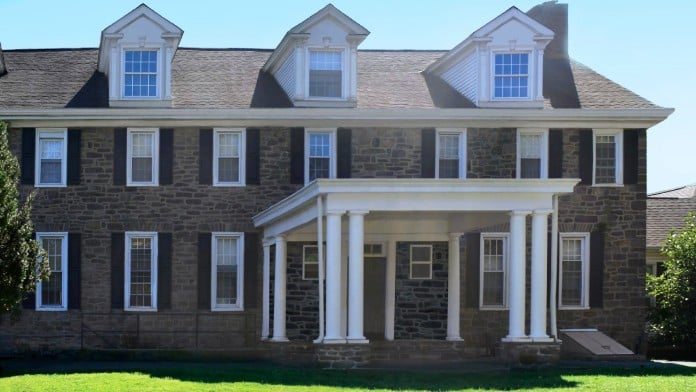
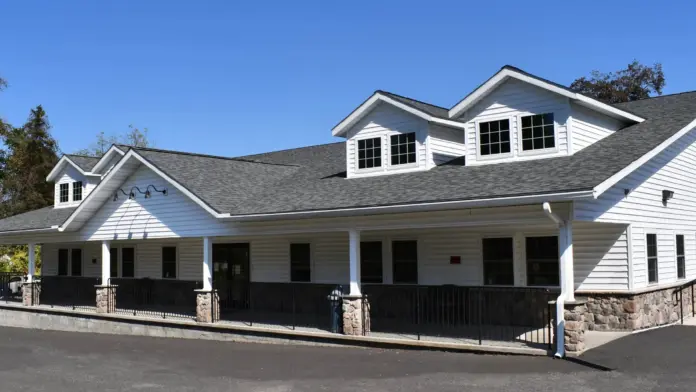
Location
Accepted Insurance





Other Forms of Payment
Medicaid is a state based program that helps lower-income individuals and families pay for healthcare. Medicaid covers addiction treatment so those enrolled can use their coverage to pay for rehab. When a program accepts Medicaid the client often pays very little or nothing out of their own pocket.
Private insurance refers to any kind of healthcare coverage that isn't from the state or federal government. This includes individual and family plans offered by an employer or purchased from the Insurance Marketplace. Every plan will have different requirements and out of pocket costs so be sure to get the full details before you start treatment.
Self-pay involves paying for treatment out of your own pocket. You can use savings or credit, get a personal loan, or receive help from family and friends to fund your treatment. If you don't have insurance or your insurance plan doesn't cover a specific program, self-pay can help ensure you still get the care you need.
Financial aid can take many forms. Centers may have grants or scholarships available to clients who meet eligibility requirements. Programs that receive SAMHSA grants may have financial aid available for those who need treatment as well. Grants and scholarships can help you pai for treatment without having to repay.
Military members, veterans, and eligible dependents have access to specific insurance programs that help them get the care they need. TRICARE and VA insurance can help you access low cost or no cost addiction and mental health treatment. Programs that accept military insurance often have targeted treatment focused on the unique challenges military members, veterans, and their families face.
Addiction Treatments
Levels of Care
Treatments
The goal of treatment for alcoholism is abstinence. Those with poor social support, poor motivation, or psychiatric disorders tend to relapse within a few years of treatment. For these people, success is measured by longer periods of abstinence, reduced use of alcohol, better health, and improved social functioning. Recovery and Maintenance are usually based on 12 step programs and AA meetings.
Drug rehab in Pennsylvania is devoted to the treatment of addiction. Levels of care, treatment methods, and settings differ, but the aim of each program is to end drug dependency and empower participants to achieve long-term recovery.
Pyramid Healthcare provides dual diagnosis treatment, which addresses symptoms of both mental health disorders and addiction, for adults at select facilities. By combining the most effective aspects of mental health care and substance abuse into a continuum, the chances of a client successfully maintaining sustained sobriety increase greatly. Many Pyramid Healthcare clinicians and counselors are certified in the treatment of co-occurring mental health disorders and are able to effectively and expertly apply the tenets of dual diagnosis treatment. Clients receiving dual diagnosis treatment will receive psychiatric care and proper medication to address their diagnosis while simultaneously participating in addiction recovery programs.
Opioid rehabs specialize in supporting those recovering from opioid addiction. They treat those suffering from addiction to illegal opioids like heroin, as well as prescription drugs like oxycodone. These centers typically combine both physical as well as mental and emotional support to help stop addiction. Physical support often includes medical detox and subsequent medical support (including medication), and mental support includes in-depth therapy to address the underlying causes of addiction.
Substance rehabs focus on helping individuals recover from substance abuse, including alcohol and drug addiction (both illegal and prescription drugs). They often include the opportunity to engage in both individual as well as group therapy.
Programs




Clinical Services
Family involvement can be critical to a client’s success during and after treatment. Pyramid Healthcare has developed a family program designed to educate the client’s family members about the disease of addiction. This program helps both the individual in specialty treatment and their family learn skills and develop behaviors effective in minimizing the negative impact of the addiction on the familial relationship. Their family program can also open lines of communication between the client and their family members. Pyramid Healthcare counselors can provide family counseling if it is requested by the client.
Group therapy is any therapeutic work that happens in a group (not one-on-one). There are a number of different group therapy modalities, including support groups, experiential therapy, psycho-education, and more. Group therapy involves treatment as well as processing interaction between group members.
In individual therapy, a patient meets one-on-one with a trained psychologist or counselor. Therapy is a pivotal part of effective substance abuse treatment, as it often covers root causes of addiction, including challenges faced by the patient in their social, family, and work/school life.
Assisting their clients in their search for recovery and a higher quality of life is a crucial part of their mission. In order to help individuals struggling from addiction successfully reintegrate into the community once they have completed treatment, they provide extensive life skills training at their halfway houses and residential programs. Pyramid Healthcare specialists and clinicians collaborate in an effort to provide clients with guidance and instruction on a variety of real-world topics. These include financial management, job preparation, communication skills, social etiquette, volunteerism, and the appropriate utilization of community resources.
Trauma therapy addresses traumatic incidents from a client's past that are likely affecting their present-day experience. Trauma is often one of the primary triggers and potential causes of addiction, and can stem from child sexual abuse, domestic violence, having a parent with a mental illness, losing one or both parents at a young age, teenage or adult sexual assault, or any number of other factors. The purpose of trauma therapy is to allow a patient to process trauma and move through and past it, with the help of trained and compassionate mental health professionals.
The goal of nutrition therapy is to help you understand how your diet affects your overall health. It teaches you healthy eating habits, which speed up your recovery and give you the nutrients you need for long term physical and mental health.
Motivational interviewing in Pennsylvania gives you the opportunity to share your perspective and explore your ideas and motivation for change. Your therapist will walk you through the four steps of engaging, focusing, evoking, and planning to empower you to make any desired changes in your life.
Amenities
-
Private Setting
-
Yoga Studio
-
Private Transportation
Staff & Accreditations
Staff

Vice President of Operations

Senior Director of Marketing

Regional Director of Marketing

Regional Director of Marketing
Accreditations

The Commission on Accreditation of Rehabilitation Facilities (CARF) is a non-profit organization that specifically accredits rehab organizations. Founded in 1966, CARF's, mission is to help service providers like rehab facilities maintain high standards of care.
CARF Accreditation: Yes
Contact Information
1990 Woodbourne Road
Suite A
Langhorne PA, 19047









